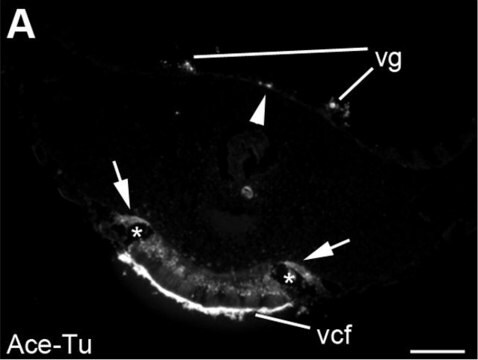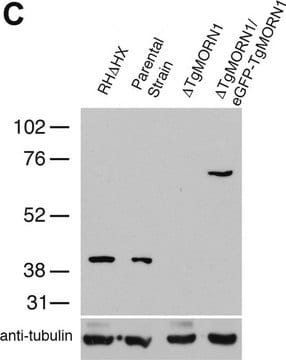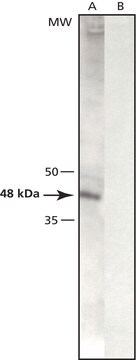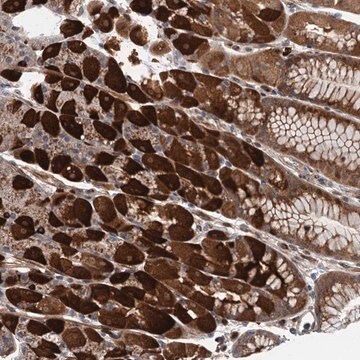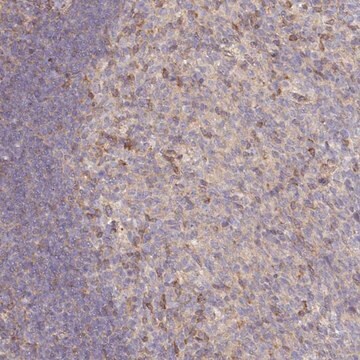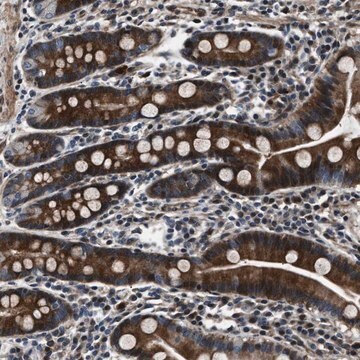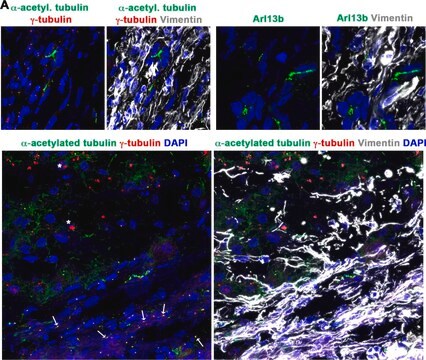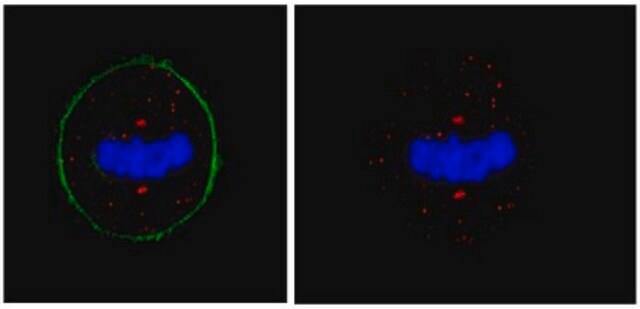T6557
Anti-γ-Tubulin antibody, Mouse monoclonal
clone GTU-88, ascites fluid
Synonym(s):
Anti-γ-Tubulin antibody, Mouse monoclonal
About This Item
Recommended Products
biological source
mouse
Quality Level
conjugate
unconjugated
antibody form
ascites fluid
antibody product type
primary antibodies
clone
GTU-88, monoclonal
mol wt
antigen 48 kDa
contains
15 mM sodium azide
species reactivity
rat, hamster, chicken, human, bovine, canine, Xenopus, mouse
technique(s)
immunocytochemistry: 1:5,000-1:10,000 using HeLa cells
indirect ELISA: suitable
western blot: 1:10,000 using cultured chicken fibroblast extract
isotype
IgG1
UniProt accession no.
application(s)
research pathology
shipped in
dry ice
storage temp.
−20°C
target post-translational modification
unmodified
Gene Information
human ... TUBG1(7283)
mouse ... Tubg1(103733)
rat ... Tubg1(252921)
Looking for similar products? Visit Product Comparison Guide
General description
Monoclonal Anti-γ-Tubulin (mouse IgG1 isotype) is derived from the GTU-88 hybridoma produced by the fusion of mouse myeloma cells and splenocytes from an immunized mouse.
Specificity
Immunogen
Application
Monoclonal Anti-γ-Tubulin is also suitable for use in immunochemical applications such as immunoblotting, immunocytochemical staining of cultured cells and in ELISA.
Biochem/physiol Actions
Physical form
Storage and Stability
Disclaimer
Not finding the right product?
Try our Product Selector Tool.
Storage Class Code
10 - Combustible liquids
WGK
WGK 3
Flash Point(F)
Not applicable
Flash Point(C)
Not applicable
Certificates of Analysis (COA)
Search for Certificates of Analysis (COA) by entering the products Lot/Batch Number. Lot and Batch Numbers can be found on a product’s label following the words ‘Lot’ or ‘Batch’.
Already Own This Product?
Find documentation for the products that you have recently purchased in the Document Library.
Customers Also Viewed
Articles
Microtubules of the eukaryotic cytoskeleton are composed of a heterodimer of α- and β-tubulin. In addition to α-and β-tubulin, several other tubulins have been identified, bringing the number of distinct tubulin classes to seven.
Our team of scientists has experience in all areas of research including Life Science, Material Science, Chemical Synthesis, Chromatography, Analytical and many others.
Contact Technical Service

